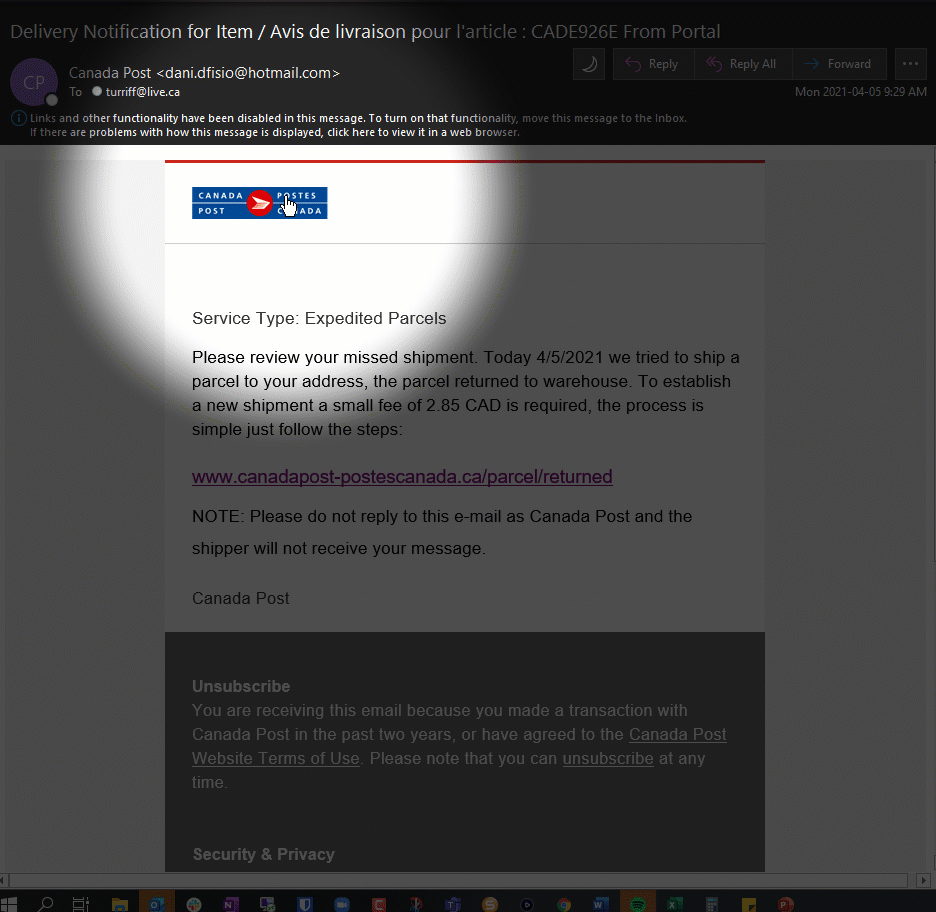Ever had a threatening phone message supposedly left by the CRA? Read news stories about an unsuspecting senior bulk-purchasing iTunes gift cards to avoid more severe penalties? The truth is new ways to scam Canadians pop up daily. Robot voicemails and requests for gift cards are still happening in our communities – but there are many more scams running that you might not know. Beware of fraud! Do you know how to protect yourself and your loved ones from some of the less obvious scam attempts?
#1. To text or not to text?
The answer – not to text. The CRA isn’t your texting buddy and doesn’t want to connect on Facebook or WhatsApp. If you ever receive a text message with a tax issue like an unpaid balance or accusations of fraudulent behaviour – chances are you’re on the wrong side of a scam. These attempts often start with information regarding your refund. This is another red flag as CRA won’t know your refund/payable status in any automated messaging. Let your friends and family know that if they question a text message and want answers – they should call the CRA directly instead of responding by text or clicking on any links you receive.
#2. If it sounds like a threat, it probably is
The CRA will phone taxpayers when necessary, but the tone used will never border on threatening. If someone demands immediate payment or offers an alternative method of payment (like gift cards or e-transfers), that’s a sign that you’re speaking to a scammer. Using an aggressive tone or threatening jail time isn’t likely from a CRA rep. Tech-minded fraudsters can alter what your caller ID says to trick you into thinking they are the real deal – so never rely on that information alone. You may even have someone calling you back saying your number has called them. You cannot do much here as your number may have just been chosen randomly as their “spoof” call display. When in doubt, log in to your CRA My Account to look for any notifications. You can also call the CRA directly to be sure you are speaking to the right person.
#3. When an email is more than an email
Email has been the preferred method of communication for many people for years. You can choose when to open an email, you can take your time to give a thoughtful response – and unlucky for scammers – you can delete and report emails without a second thought. The CRA will use email communication from time to time, but this is typically to alert you of a new notification waiting for you in your My Account. They may also send you an email with helpful links WHILE you’re on the phone with them. If you find an email in your inbox with a link to claim your refund – don’t click it (as tempting as it may be). You also won’t receive a legitimate email from the CRA demanding payment, sending suspicious links, or threatening jail time if you don’t act immediately.
Below is an excellent example of what to look for in a suspicious email – the example below looks to be from Canada Post, warning me of a not delivered package.

A few things I questioned:
1. How did Canada Post know my email? Sure, I use it online for shopping, but the store would not pass this on (plus, this happened to be an old email I don’t use anymore).
2. Notice the email says it’s from Canada Post; anyone can change the name on the email, but the return address in this case is @hotmail – which is very suspicious.
3. When I hover over the link, it shows me the actual URL it will take me to, and it doesn’t look like Canada Post’s website to me.
This is one believable example I received recently. At first look, it could easily have been from Canada Post, just like the robot this morning that called and said my Social Insurance Number was suspended.
One of the many benefits of paying any CRA debts right away is the peace of mind that comes from never second-guessing an aggressive voicemail or cryptic email again. It also helps to trust your taxes to a professional! Talk to your accountant or advisor about ensuring you’re up to date. (Psst… they can also give you specific tips for avoiding scams). Don’t have an accountant? Talk to the team at RLB today.
Worried that you or someone you know has been the victim of identity theft or fraud? The Government of Canada has resources that can help; visit their website.
